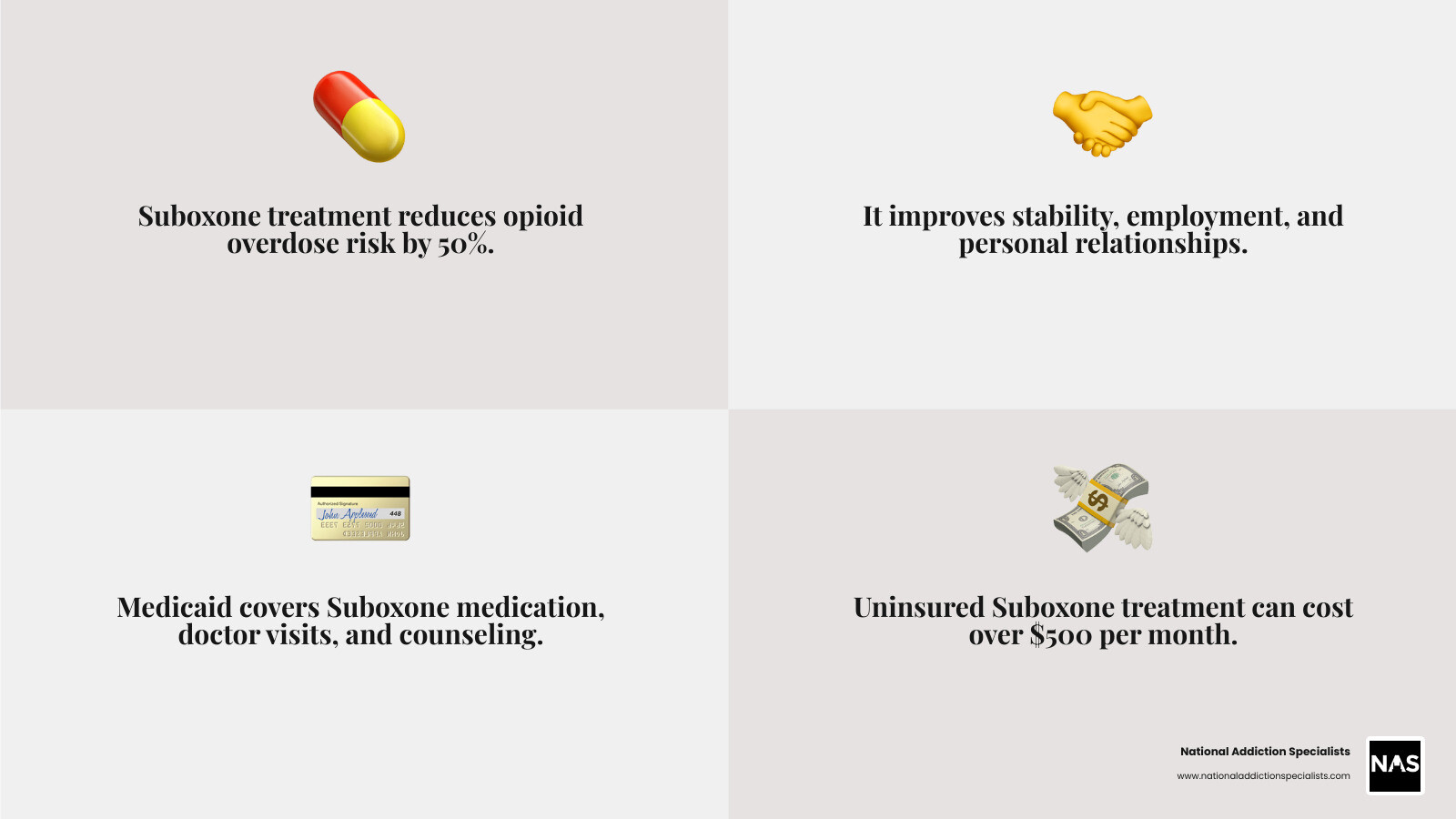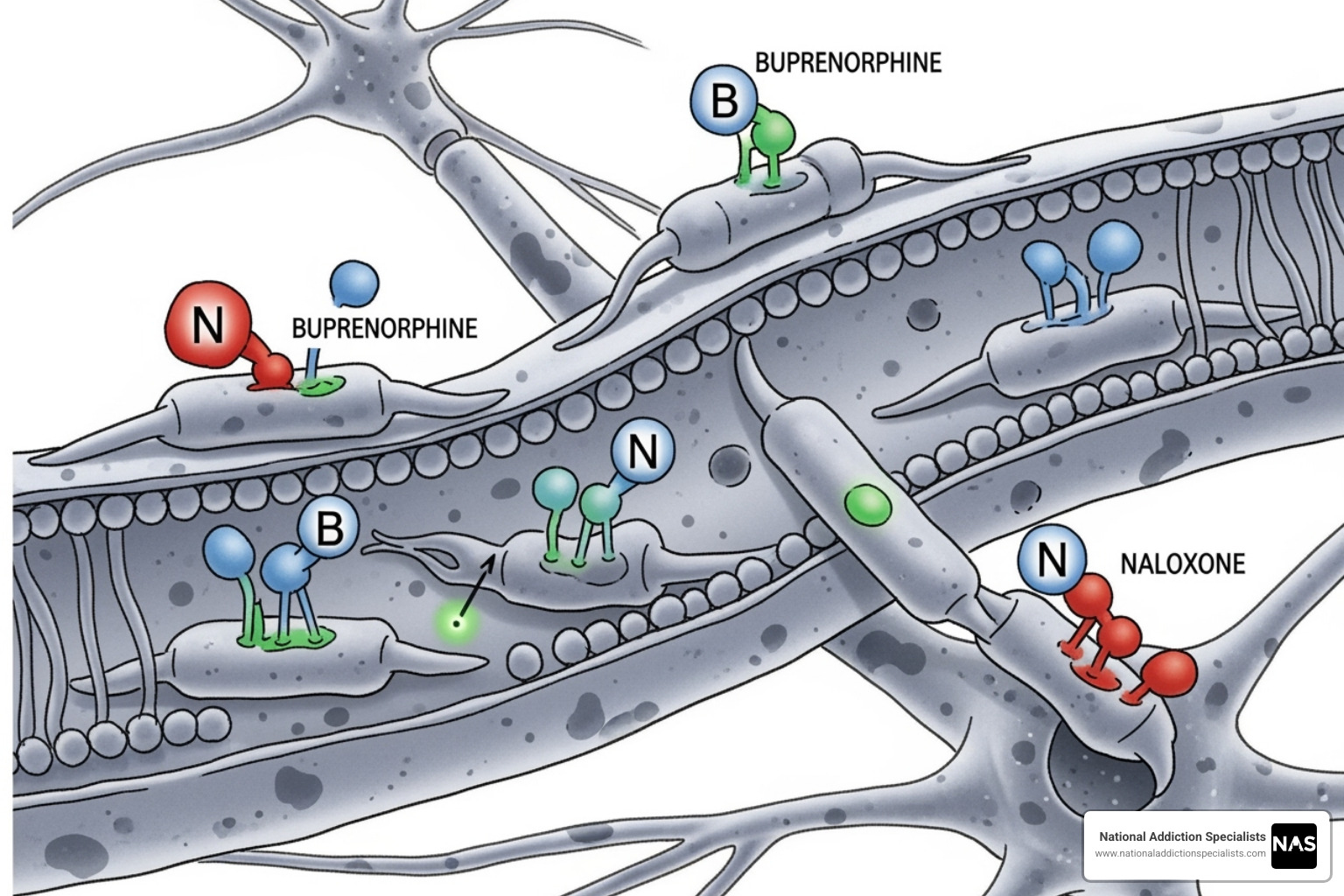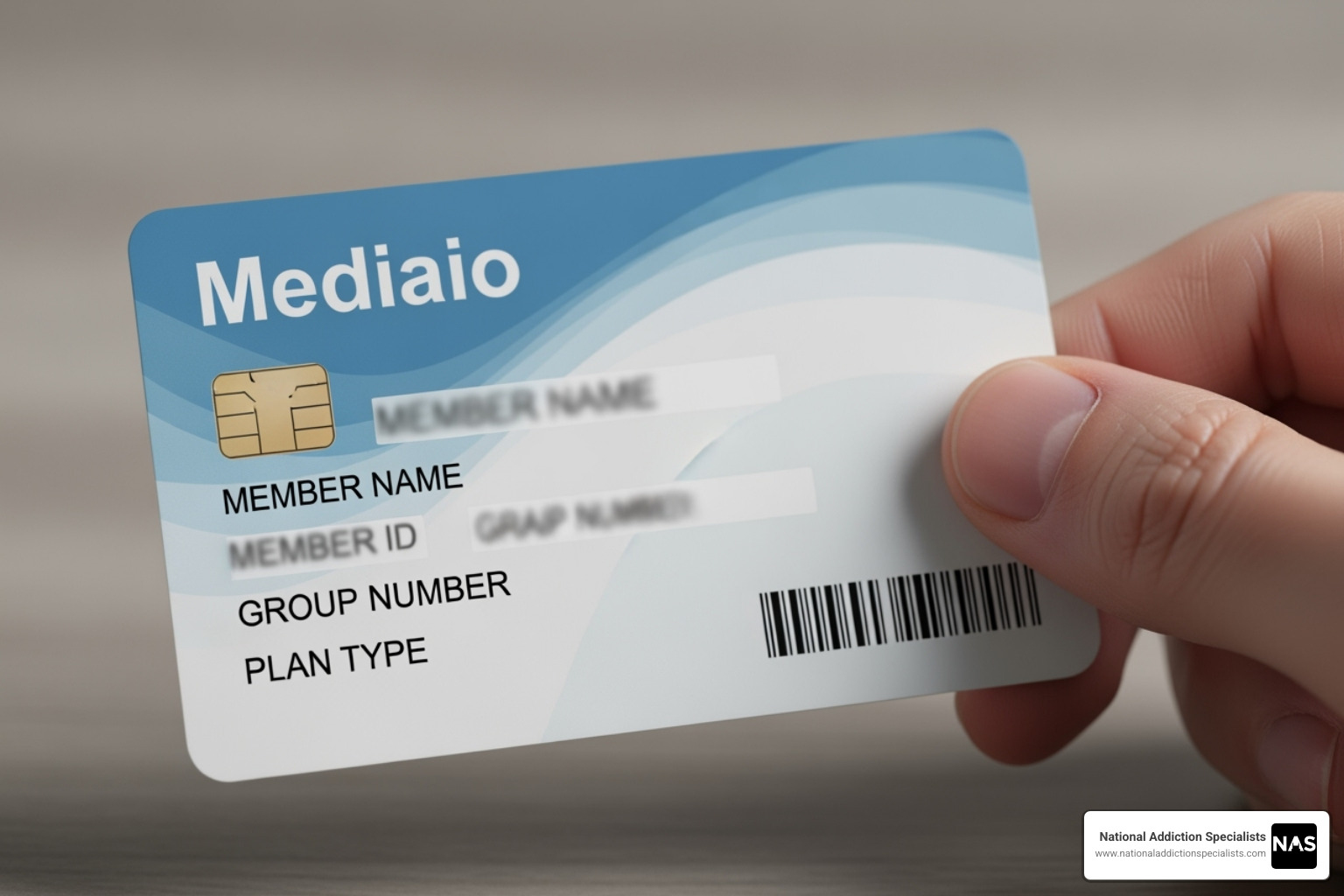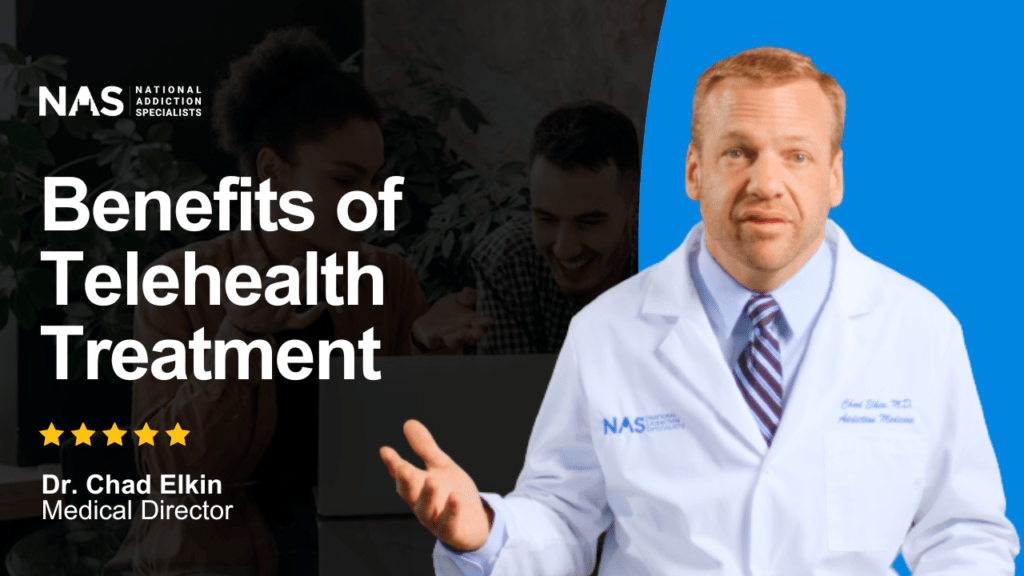Why Finding the Right Suboxone Doctor with Medicaid Matters
For those with Medicaid struggling with opioid addiction, Suboxone doctors Medicaid coverage is the key to affordable, life-saving treatment. Here are your main options:
Quick Ways to Find Suboxone Doctors That Accept Medicaid:
- SAMHSA Treatment Locator – Filter by “Medicaid” and “prescribes buprenorphine”
- State Medicaid Office – Call for official provider directory
- Primary Care Doctor – Ask for referrals to addiction specialists
- Online Platforms – Many telehealth providers now accept Medicaid
Opioid addiction affects millions, but effective treatment exists. Medication-assisted treatment (MAT) with Suboxone reduces overdose risk by 50% and helps people maintain jobs and relationships. The biggest barrier is often cost.
Without insurance, Suboxone treatment can exceed $500 per month. Medicaid is crucial, as it covers the medication, doctor visits, counseling, and ongoing support.
As one patient shared: “I struggled through five different places before I found National Addiction Specialists and I’m so thankful I did. Everything every other clinic said they had to offer you guys actually make it a priority.”
The challenge is finding providers who accept your insurance and offer quality care.
I’m Dr. Chad Elkin, founder and Medical Director of National Addiction Specialists, board-certified in Addiction Medicine. I’ve spent years helping patients steer Suboxone doctors Medicaid coverage. My work on state and national addiction medicine committees has shown me how insurance barriers can delay life-saving treatment.

Suboxone doctors Medicaid terms explained:
- mat clinics near me
- suboxone dr near me
What is Suboxone and How Does It Treat Opioid Addiction?
Understanding treatment options for opioid addiction can feel overwhelming. Suboxone is a game-changer in addiction medicine, offering a science-backed path to recovery.
What is Suboxone? It’s a combination medication with two ingredients that help you break free from opioid addiction.
The first ingredient, buprenorphine, is a partial opioid agonist. It gently activates the brain’s opioid receptors just enough to reduce cravings and prevent withdrawal symptoms, without producing a dangerous high.
The second ingredient, naloxone, is a safety net. If Suboxone is injected, naloxone blocks opioid receptors to prevent misuse. This creates a “ceiling effect,” limiting the medication’s effects and making it much safer than other treatments.
Together, these ingredients stabilize brain chemistry so you can focus on rebuilding your life. You can learn more about What is Suboxone? and dive deeper into How Suboxone Opioid Treatment Works on our site.
This approach is part of medication-assisted treatment (MAT), which has extensive scientific research on medication-assisted treatment supporting its effectiveness.

The Proven Benefits of Suboxone Treatment
When Suboxone doctors Medicaid patients start treatment, we see life-changing improvements beyond just stopping drug use.
Your overdose risk drops dramatically – by as much as a 50% reduction. This saves lives and restores futures.
You’re more likely to stick with treatment. Suboxone helps you stay engaged in your recovery program. Without battling withdrawal, you can focus on counseling and support to build lasting recovery skills.
Your whole life becomes more stable. Patients report thinking clearly, sleeping better, and repairing relationships. One of our patients, Jason P., shared: “National Addiction Specialists saved my life and are exceptional in providing quality care in an excellent manner overall I would rate them a 10 out of 10 there’s no better place to care for me than National Addiction Specialists.”
Getting back to work becomes possible. SAMHSA research shows that MAT helps people hold down a job and avoid criminal activities associated with untreated addiction. You can focus on being productive again.
These benefits are what we see every day with Suboxone for Opioid Addiction treatment. Recovery isn’t just about stopping drug use; it’s about getting your life back.
How to Find Suboxone Doctors Who Accept Medicaid
Finding Suboxone doctors Medicaid providers can feel overwhelming, but you’re not alone. There are clear, practical steps to connect you with the care you need.
While Medicaid coverage for Suboxone has expanded, navigating the system can be tricky. Provider networks change, availability varies, and state rules differ. Don’t be discouraged; the right approach will help you find quality, affordable care.
Step 1: Use Online Treatment Locators
Online treatment locators have revolutionized how people find addiction care, making it easy to identify Suboxone doctors Medicaid providers from home.
The SAMHSA Treatment Locator is your most powerful tool. Enter your zip code, select “Substance use,” and filter by “Medicaid” and “prescribes buprenorphine” to find providers who can prescribe Suboxone.
This tool shows both traditional clinics and Online Suboxone Doctors who accept Medicaid. Telemedicine often offers shorter wait times and greater flexibility.
Also, try searching “Medicaid provider directory” plus your state name for state-maintained databases.
Step 2: Contact Your State’s Medicaid Office
Your state’s Medicaid office has the most current, accurate information on providers accepting new patients under your specific plan.
Medicaid isn’t a single program. If you’re in a Managed Care Organization (MCO), they have their own provider network. The customer service number on your Medicaid card connects you to people who can provide an official list of Suboxone doctors Medicaid in your area.
When you call, be specific: “I’m seeking treatment for opioid addiction and need a list of doctors who prescribe Suboxone and accept my Medicaid plan.” They can often provide information on wait times and telehealth options, helping you understand your Insurance and Pricing details.
Step 3: Prepare for Your First Contact
Once you have a list of providers, some preparation can save time and help you choose the best option for your recovery.
Before you call, gather these essentials: your Medicaid ID number, a photo ID, a brief medical history (especially opioid use), current medications, and your treatment goals. This helps providers determine if they’re the right fit for you.
During your calls, ask key questions to make an informed decision. Confirm they accept your specific Medicaid plan. Ask about new patient availability, as wait times vary. Find out if they offer telehealth, which is helpful for those with transportation challenges or in rural areas.
Also ask about what services are included. Some providers offer comprehensive care with counseling, while others focus on medication management. Understanding what’s covered helps avoid surprises. The goal is to find the right provider for your unique situation.
Understanding Medicaid Coverage for Suboxone Treatment
Medicaid coverage for Suboxone doctors Medicaid treatment is a significant victory for making recovery accessible. Federal mandates require Medicaid programs nationwide to cover medication-assisted treatment (MAT), including Suboxone. This is a lifeline for millions who previously couldn’t afford care.
While the federal government sets the foundation, each state has its own rules. Your experience with Medicaid in Tennessee might differ from Virginia. Each state program has unique eligibility requirements, covered services, and limitations or prior authorization steps.
The guiding rule for Medicaid coverage is “medical necessity.” This means your treatment must be necessary for your condition and meet medical standards. For Opioid Use Disorder, this standard is usually met with proper documentation from your provider.

What Services Does Medicaid Typically Cover?
Medicaid coverage for Suboxone doctors Medicaid treatment is comprehensive, supporting a complete approach to your recovery.
Doctor’s appointments are the backbone of your treatment. This includes the initial assessment, regular follow-ups to monitor progress, and check-ins to adjust your plan. Medicaid recognizes the importance of these visits.
The Suboxone medication costs (film or tablet) are typically covered, saving you over $500 per month. This allows you to invest in other necessities that support recovery.
Counseling services are a critical piece of the puzzle. Medicaid typically covers individual and group sessions, as medication alone is often not enough for lasting recovery. As our patient Jamie W. expressed: “The NAS clinic has turned my life around. I am so grateful to JT, and the rest of the staff for being so nice and encouraging and helpful. They truly saved my life.”
Behavioral therapy options like Cognitive Behavioral Therapy (CBT) are usually covered, helping you develop coping strategies.
Urine drug screening is also typically covered by Medicaid as part of your comprehensive care package to monitor progress.
For more detailed information, explore our patient education resources.
Understanding Limitations and Requirements for Suboxone Doctors Medicaid
While Medicaid coverage is comprehensive, there can be some requirements. These act as guardrails to ensure you receive appropriate and effective treatment.
Prior authorization is a common requirement. Your provider may need to submit paperwork to Medicaid explaining why Suboxone is right for you. The process usually takes a few days, but it’s good to know about upfront to avoid delays.
Dosage limitations exist in many states, with caps often between 16 to 32 mg maximum per day. Your doctor can request an exception with medical justification if a higher dose is needed.
Counseling requirements vary by state. Over 16 states require counseling for Suboxone coverage. Combining medication with counseling is the gold standard for recovery success.
State-specific rules can vary. Some states might require documentation of your OUD diagnosis length, while others limit which providers can prescribe.
Lock-in programs are less common but may assign you to specific providers or pharmacies. You can usually work with your Medicaid office to change your designated provider if needed.
Understanding these nuances empowers you to steer the system and get uninterrupted access to life-saving care.
The Rise of Telemedicine for Suboxone Treatment
Telemedicine has transformed healthcare, especially addiction treatment. For those with opioid addiction, connecting with a provider from home has opened doors to care.
Convenience can be life-changing. As our patient Brandy B. shared, “it’s so convenient me being a mom that works full time from home.” Telehealth eliminates the need to arrange childcare, take time off work, or worry about transportation.
Accessibility is powerful for rural communities or areas with few specialists. Telemedicine bridges these gaps, bringing expert care to your home. For many, it’s the difference between getting treatment and going without.
Confidentiality is another benefit. The stigma of addiction treatment can be a barrier to care. Receiving care privately at home helps, and many patients feel more comfortable opening up in virtual appointments.
Transportation barriers can derail recovery. A missed appointment can lead to relapse. Telehealth eliminates this risk.
The results are clear. Studies show virtual addiction treatment programs have retention rates of 60% to 70% at six months, compared to 30% in traditional settings. This means more people stay in treatment and continue their recovery.
Can I See Online Suboxone Doctors with Medicaid?
Yes! The ability to see online Suboxone doctors with Medicaid has expanded dramatically, making treatment more accessible than ever. Here’s what makes it possible.
The DEA guidelines for controlled substances are key. Since Suboxone is a Schedule III medication, licensed doctors can legally prescribe it via telemedicine.
The COVID-19 public health emergency accelerated these changes. Relaxed regulations opened new possibilities for telehealth prescribing. While some measures have evolved, the trend continues to support telemedicine for opioid use disorder treatment.
State laws also play a role. Most states have accepted telemedicine for addiction treatment. At National Addiction Specialists, we serve patients throughout Tennessee and Virginia, offering quality care from the comfort of home.
This means with Medicaid, you can often find an Online Suboxone Clinic that accepts your insurance. It’s a game-changer for starting and maintaining recovery, especially when juggling other responsibilities.
Frequently Asked Questions about Suboxone and Medicaid
Navigating Suboxone doctors Medicaid coverage can be overwhelming. Here are answers to the most common questions I hear from patients.
Are there specific eligibility requirements for Medicaid coverage of Suboxone?
If you qualify for Medicaid, you’re likely eligible for Suboxone coverage. Medicaid eligibility depends on income, household size, and disability status, with requirements varying by state. Some states have expanded programs, while others have stricter guidelines.
For Suboxone coverage, the main requirement is a diagnosis of Opioid Use Disorder (OUD) from a qualified provider to confirm medical necessity.
Some states add requirements, like proof of participation in counseling. This aligns with best practices, as combining Suboxone with therapy offers the best chance at long-term recovery. Check with your state’s Medicaid office for specific rules.
What if a Suboxone doctor is not in my Medicaid network?
It’s frustrating to find a doctor you like who doesn’t take your insurance.
If a doctor is out-of-network, Medicaid typically won’t cover the costs, which can lead to large bills. This defeats the purpose of having Medicaid.
Always verify that a provider accepts your specific Medicaid plan (e.g., TennCare or Virginia Medicaid) before your first appointment. Don’t just ask if they take “Medicaid.” Get confirmation in writing or note who you spoke with.
Use your state’s Medicaid provider directory or call your insurance plan directly. This extra step saves you from unexpected bills and stress.
How often are follow-up appointments required for Suboxone treatment with Medicaid?
Appointment frequency depends on your recovery stage and your doctor’s clinical judgment. State Medicaid guidelines also play a role, but your clinical needs come first.
When first starting Suboxone, expect more frequent visits (weekly or bi-weekly). This is crucial for monitoring your response, adjusting your dose, and ensuring you’re stable.
As you become more stable in your recovery, appointments typically spread out to bi-weekly or monthly. The goal is a schedule that supports your recovery and fits your life. As our patient Brandy mentioned, our program is “so convenient me being a mom that works at home full time.”
Medicaid covers these medically necessary follow-up appointments, recognizing that ongoing support is essential for long-term success.
Conclusion: Your Path to Recovery Starts Here
Taking the first step toward recovery from Opioid Use Disorder requires courage. The journey might feel overwhelming, but overcoming addiction is possible, and you don’t have to do it alone.
Medicaid makes treatment affordable, removing a major barrier to care. You can focus on recovery instead of cost. Telehealth makes it accessible, bringing expert care to your home and eliminating challenges like transportation and childcare.
At National Addiction Specialists, we believe everyone deserves access to quality addiction treatment. We specialize in medication-assisted treatment with Suboxone, offering personalized recovery plans. Serving Tennessee and Virginia, we accept both Medicaid and Medicare because your insurance status shouldn’t determine your quality of care.
Our patients tell the story best. As Wes G. shared, “This staff actually cares about helping people with our disease… it’s about helping those in need that want to be helped!” That’s the care we strive to provide.
Your search for Suboxone doctors Medicaid doesn’t have to be a barrier. Whether you’re just starting your search or have been looking for a while, we’re here to help. Recovery is possible, affordable care is available, and a healthier life is waiting.
Start your recovery with a New Patient Package – because every journey toward healing begins with a single step.
This article was medically reviewed by:
Chad Elkin, MD, DFASAM is a board-certified addiction medicine physician, founder, and Chief Medical Officer of National Addiction Specialists, dedicated to treating substance use disorders. A Distinguished Fellow of the American Society of Addiction Medicine (ASAM), Dr Elkin currently serves as President of the Tennessee Society of Addiction Medicine (TNSAM) and has held various leadership roles within the organization. Dr Elkin chairs ASAM’s Health Technology Subcommittee and is an active member of its Practice Management and Regulatory Affairs Committee, State Advocacy and Legislative Affairs Committee, and other committees. He also serves on the planning committee for the Vanderbilt Mid-South Addiction Conference. Committed to advancing evidence-based policy, Dr Elkin is Chairman of the Tennessee Association of Alcohol, Drug, & Other Addiction Services (TAADAS) Addiction Medicine Council, which collaborates with the TN Department of Mental Health & Substance Abuse Services (TDMHSAS). He has contributed to numerous local, state, and national task forces, helping develop professional guidelines, policies, and laws that align with best practices in addiction medicine. His work focuses on reducing addiction-related harm, combating stigma, and ensuring access to effective treatment.Passionate about the field of addiction medicine, he remains dedicated to shaping policy and enhancing patient care.
Suboxone® and Subutex® are a registered trademark of Indivior UK Limited. Any mention and reference of Suboxone® and Subutex® in this website is for informational purposes only and is not an endorsement or sponsorship by Indivior UK Limited.









